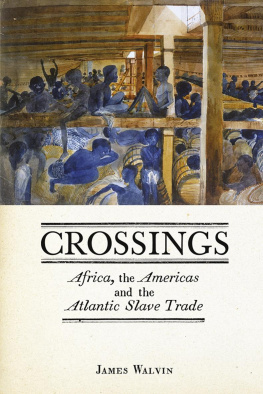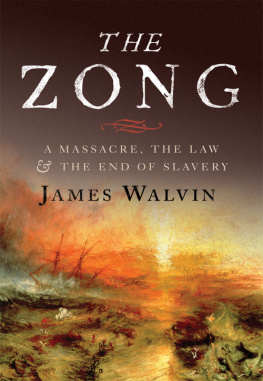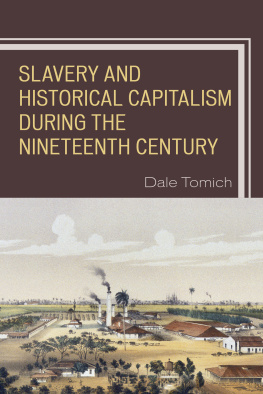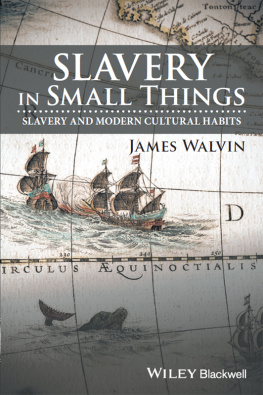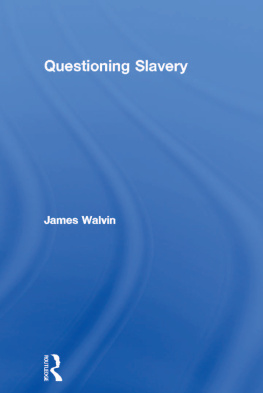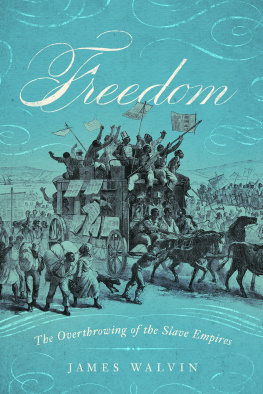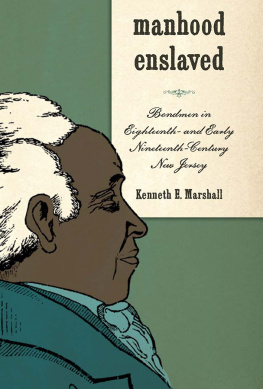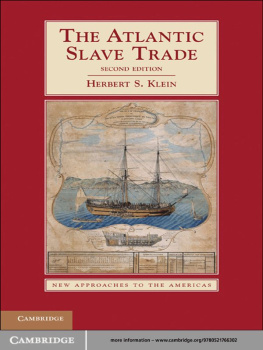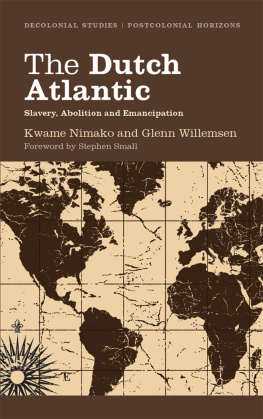PENGUIN BOOKS
A Short History of Slavery
James Walvin taught for many years at the University of York, where he is now Professor of History Emeritus. He also held visiting positions in the Caribbean, the USA and Australia. He won the Martin Luther King Memorial Prize for his book Black and White, and has published widely on the history of slavery and the slave trade, including more recently Black Ivory: A History of British Slavery. His book The Peoples Game was a pioneering study of the history of football and remains in print thirty years after its first publication. The Quakers: Money and Morals was chosen by The New York Times as one of their Notable Books of the Year.
A Short History of Slavery
JAMES WALVIN

PENGUIN BOOKS
PENGUIN BOOKS
Published by the Penguin Group
Penguin Books Ltd, 80 Strand, London WC2R 0RL, England
Penguin Group (USA) Inc., 375 Hudson Street, New York, New York 10014, USA
Penguin Group (Canada), 90 Eglinton Avenue East, Suite 700, Toronto, Ontario, Canada M4P 2Y3
(a division of Pearson Penguin Canada Inc.)
Penguin Ireland, 25 St Stephens Green, Dublin 2, Ireland (a division of Penguin Books Ltd)
Penguin Group (Australia), 250 Camberwell Road, Camberwell, Victoria 3124, Australia
(a division of Pearson Australia Group Pty Ltd)
Penguin Books India Pvt Ltd, 11 Community Centre, Panchsheel Park,
New Delhi 110 017, India
Penguin Group (NZ), 67 Apollo Drive, Rosedale, North Shore 0632, New Zealand
(a division of Pearson New Zealand Ltd)
Penguin Books (South Africa) (Pty) Ltd, 24 Sturdee Avenue,
Rosebank, Johannesburg 2196, South Africa
Penguin Books Ltd, Registered Offices: 80 Strand, London WC2R 0RL, England
www.penguin.com
First published 2007
1
Copyright James Walvin, 2007
All rights reserved
The moral right of the author has been asserted
Except in the United States of America, this book is sold subject
to the condition that it shall not, by way of trade or otherwise, be lent,
re-sold, hired out, or otherwise circulated without the publishers
prior consent in any form of binding or cover other than that in
which it is published and without a similar condition including this
condition being imposed on the subsequent purchaser
EISBN: 9780141905853
Contents
PART I
Slavery before Modernity
PART II
Slavery in the Atlantic World
PART III
The Americas
PART IV
Abolition and Emancipation
Introduction
Slavery and Abolition
Britain and the United States of America banned their Atlantic trade in African slaves in 1807 and 1808. In fact the trade survived (mainly to Brazil and Cuba) until it died away in the 1860s. Over the preceding three and a half centuries, some twelve million Africans had been loaded on to the Atlantic slave ships. About ten and a half million of them survived to landfall in the Americas. Most of the major maritime nations of western Europe and the Americas involved themselves to some degree in this Atlantic slave system. But by the mid-eighteenth century, the British had emerged as the commercial and maritime masters of the bleak skills of moving large numbers of Africans speedily and profitably towards the American plantations.
The abolition of the slave trade was followed, in the nineteenth century, by the piecemeal, haphazard dismantling of black slavery across the Americas, beginning with the slave upheaval in St Domingue (Haiti) in the 1790s and ending with the emancipation of the few remaining slaves in Brazil in 1888. Britain ended slavery in its colonies by Act of Parliament (and by paying a staggering amount of compensation to the slave owners) in 18338, but slavery in the US ended in the bloodshed of the Civil War (186065).
From first to last, slavery was a system characterized by brutality. Moreover, it was a system that had far-reaching ramifications for three continents: for the Americas, whose economic potential was tapped by generations of imported Africans, for Europe, which orchestrated (and benefited from) the whole system, and of course for Africa, for which massive loss of population, with attendant violence and upheaval, caused incalculable and long-term damage. But Atlantic slavery had even more profound consequences than this brief assertion might suggest, for it was a major ingredient in the transformation of the West. Slavery was the means by which the West emerged to a position of unrivalled economic and political dominance. Stated simply, African slave labour, transplanted into the Americas, was critical to the creation of Western wealth and the consequent relegation of other regions and peoples to the overarching power of the West.
Here, then, is a historical episode which is important not simply for its own sake but also for the influence it cast over a much wider historical canvas much wider indeed than is often recognized. But the history of Atlantic slavery is also interesting for a host of other, sometimes puzzling reasons. Modern readers and students often find it difficult to grasp that the suffering which was the essence of Atlantic slavery could be visited on so many people, on so vast a scale, with so little hesitation, and with no real scruple. It was as if Atlantic slavery was morally neutral for those most actively involved (counted in their tens of thousands), from the humblest of sailors to the grandest of planters and slave merchants. The annals of slavery are brimming with accounts of Western people (mainly white) dealing with black humanity in the most grotesque of fashions and yet not even noticing what they were doing. Slave captains, planters and colonial officials (often God-fearing men to their fingertips) filled their logs, ledgers and diaries with the most violent and degrading accounts of their dealings with slaves, all without registering the least doubt or hesitation about their actions. Moral self-doubt and religious hesitation rarely intruded into the way they described their working lives, which were dominated by daily face-to-face dealings with Africans and their enslaved descendants.
There is, it is true, another side to this story. There were, from first to last, people of conscience who felt uneasy about African slavery, and who recognized the moral and theological difficulties posed by slavery. But they tended to be outside the slave systems. By and large, their voices were marginalized or silenced by the contrary force of commerce, and by the seductive sound of profitable trade on the backs of African slaves. The material well-being disgorged by slavery was so abundant, so universal (except to the slaves, of course), that moral objections seemed out of place. Why worry about the Africans when their efforts yielded such bounty for so many people on either side of the Atlantic?
To modern eyes, it all seems so odd, so out of kilter with present-day sensibilities and values. Similarly, in the broader story of Atlantic slavery, there is another curious challenge for modern readers. Though it scarcely raised a moral whimper for centuries in the West, slavery ended in a crescendo of outrage and ethical disgust. The institution which had survived for centuries without attracting very much opposition ended its days denounced as an offence to Christian values and a blot on the Western conscience. Clearly, something had changed. What had happened to transform slavery (and the slave trade) into such a moral and irreligious monster? If the slave trade and slavery were so deeply immoral and unchristian in, say, 1830, why had that not been the case in 1730 or 1630? Had slavery changed? Had the West changed? Or had slavery come to occupy an utterly different position in the Western world?
Next page

